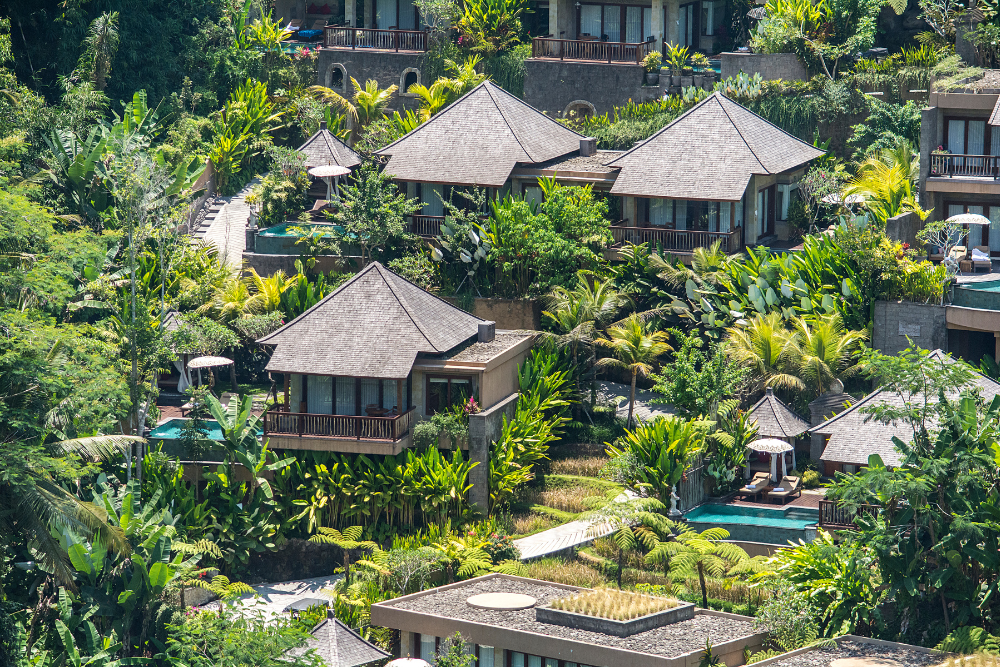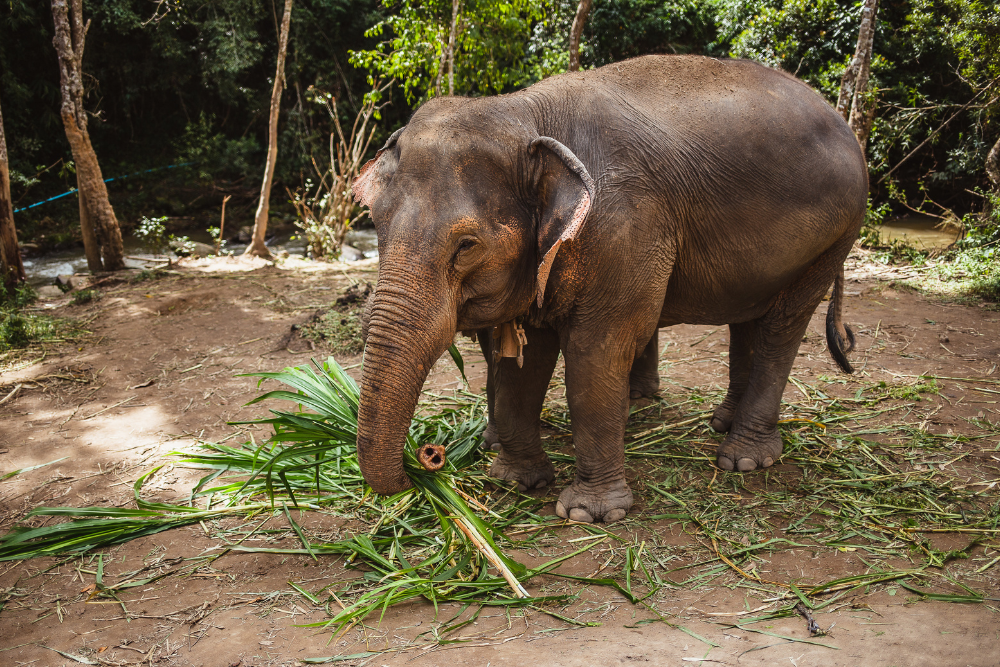Thailand, known for its stunning landscapes, rich culture, and warm hospitality, is also becoming increasingly aware of the need for sustainable tourism practices. As travelers flock to its beautiful beaches, vibrant cities, and lush jungles, adopting eco-friendly practices is crucial to preserving the country’s natural and cultural heritage. This guide explores sustainable practices that travelers can adopt to ensure their visit to Thailand is both enjoyable and environmentally responsible.
1. Choose Eco-Friendly Accommodations

Sustainable Lodging Options
One of the easiest ways to contribute to sustainable tourism is by choosing eco-friendly accommodations. Thailand boasts a range of eco-conscious hotels, hostels, and resorts that prioritize sustainability.
- Eco-Resorts: Look for resorts that use renewable energy sources, practice water conservation, and employ sustainable building materials. Properties like Koh Yao Yai Village and The Sarojin in Khao Lak are excellent examples of eco-resorts committed to environmental stewardship.
- Community-Based Tourism: Consider staying in homestays or community-run guesthouses. These accommodations often provide authentic cultural experiences while ensuring that your money directly supports local communities. Platforms like Airbnb offer numerous eco-friendly options in rural areas.
Benefits of Eco-Friendly Lodging
- Support Local Economies: Eco-friendly accommodations often reinvest in their communities, providing jobs and supporting local artisans.
- Reduce Environmental Impact: By staying at places committed to sustainability, you help reduce your carbon footprint and contribute to conservation efforts.
2. Minimize Plastic Use
Say No to Single-Use Plastics
Thailand, like many countries, struggles with plastic pollution. As a traveler, you can help combat this issue by minimizing your use of single-use plastics.
- Bring Your Own Water Bottle: Instead of buying bottled water, invest in a reusable water bottle. Many cities have refill stations, or you can use water purification tablets or filters to ensure safe drinking water.
- Use Cloth Bags: Bring reusable cloth bags for shopping instead of accepting plastic bags. Local markets often sell eco-friendly bags, which make great souvenirs.
- Avoid Plastic Straws and Cutlery: Opt for restaurants that offer alternatives to plastic straws or bring your own reusable straw. Similarly, choose establishments that provide real cutlery instead of disposable options.
Participating in Local Clean-Up Initiatives
Many local organizations host beach clean-ups and community clean-up events. Joining these initiatives allows you to contribute directly to reducing plastic waste while connecting with locals and fellow travelers.
3. Respect Local Wildlife

Responsible Wildlife Tourism
Thailand is home to diverse wildlife, including elephants, tigers, and various marine species. As an eco-conscious traveler, it’s vital to engage in responsible wildlife tourism practices.
- Choose Ethical Animal Experiences: Avoid attractions that exploit animals, such as elephant rides or animal shows. Instead, visit ethical sanctuaries like the Elephant Nature Park in Chiang Mai, where you can learn about and support rescued elephants.
- Observe Wildlife Responsibly: If you choose to go on wildlife tours, ensure they are conducted by reputable operators who prioritize conservation and animal welfare. Always observe animals from a distance and avoid feeding or disturbing them.
Protecting Marine Life
If you plan to engage in snorkeling or diving, consider participating in eco-friendly tours that emphasize marine conservation. Look for operators who follow sustainable practices, such as using reef-safe sunscreen and adhering to guidelines that protect coral reefs.
4. Support Local Communities

Buy Local
Supporting local businesses is an excellent way to promote sustainable tourism. When you shop, eat, or participate in activities, choose locally-owned establishments over international chains.
- Local Markets: Visit local markets to purchase handmade crafts, textiles, and souvenirs. This not only supports artisans but also gives you a chance to engage with local culture.
- Dining: Eat at local restaurants or street food stalls that serve traditional Thai dishes. This provides you with a delicious culinary experience while benefiting the local economy.
Engage in Community-Based Tourism
Community-based tourism initiatives allow travelers to experience local cultures while contributing to the well-being of the communities they visit. Participate in cooking classes, cultural workshops, or guided tours led by local residents to gain authentic insights into Thai traditions.
5. Practice Responsible Transportation
Eco-Friendly Transportation Options
Transportation is one of the biggest contributors to carbon emissions in tourism. To minimize your environmental impact, consider the following eco-friendly transportation options:
- Public Transportation: Use public buses, trains, or local tuk-tuks instead of renting cars or taking taxis. Thailand has a robust public transport system, particularly in cities like Bangkok, where you can use the Skytrain or MRT.
- Biking and Walking: Explore cities and attractions on foot or by bike. Many Thai cities offer bike rental services, allowing you to experience local neighborhoods at a leisurely pace while reducing your carbon footprint.
Carbon Offsetting
If you need to fly to Thailand, consider offsetting your carbon emissions by supporting environmental projects or organizations that focus on reforestation, clean energy, or wildlife conservation.
6. Embrace Local Cultures
Cultural Sensitivity
When traveling in Thailand, it’s essential to be respectful of local customs and traditions. Being culturally sensitive not only enhances your travel experience but also fosters mutual respect between visitors and locals.
- Learn Basic Thai Phrases: Making an effort to communicate in the local language, even if it’s just a few phrases, can go a long way in showing respect for the culture.
- Dress Appropriately: When visiting temples and sacred sites, adhere to the dress code, which typically requires covering shoulders and knees. This demonstrates respect for local customs.
Participate in Local Festivals
If your travel dates align with local festivals, participate in these vibrant celebrations. Events like Loy Krathong and Songkran not only provide a deeper understanding of Thai culture but also support local traditions.
7. Reduce Energy Consumption
Mindful Energy Use
While traveling, be conscious of your energy consumption. Small actions can collectively make a significant impact.
- Turn Off Lights and Electronics: When leaving your accommodation, turn off lights, air conditioning, and any electronic devices that are not in use.
- Limit Water Usage: Be mindful of water usage, especially in areas where water is scarce. Take shorter showers and reuse towels when possible.
Eco-Friendly Activities
Choose activities that promote environmental awareness, such as nature hikes, eco-tours, or volunteer opportunities focused on conservation.
8. Engage in Conservation Efforts

Volunteering
If you have extra time during your visit, consider volunteering with local conservation projects. Organizations focused on wildlife rescue, marine conservation, or environmental education often welcome international volunteers, providing a meaningful way to give back.
Support Conservation Organizations
Donate to or support local conservation organizations working to protect Thailand’s unique ecosystems and wildlife. Your contributions can help fund critical initiatives that promote sustainability and biodiversity.
Conclusion
As a traveler in Thailand, embracing eco-friendly practices not only enhances your experience but also contributes to the preservation of the country’s natural beauty and cultural heritage. By choosing sustainable accommodations, minimizing plastic use, respecting wildlife, supporting local communities, and practicing responsible transportation, you can make a positive impact during your visit. With every small action, you can help ensure that Thailand remains a vibrant and thriving destination for generations to come. Let your journey be a celebration of nature, culture, and sustainability, leaving a lasting legacy of responsible travel.












